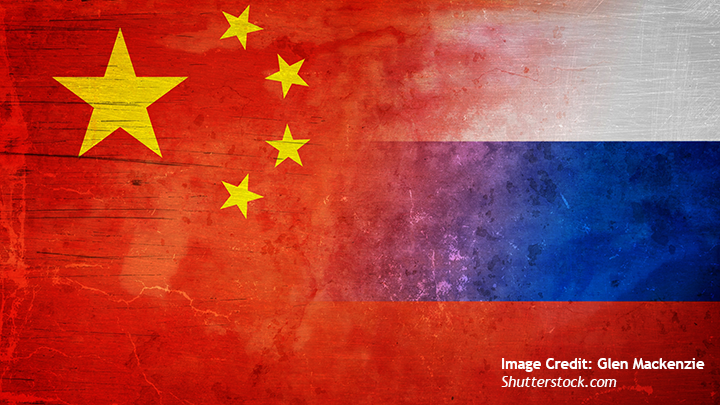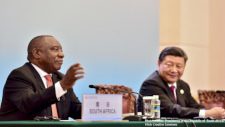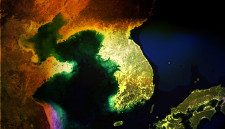Sino-Russian Relations, From Where – To Where

Mats Engman, Zack Nhan and Tove Jalmerud
Since 1949, relations between the Soviet Union/Russia and China have been oscillating between formal military alliances and military border clashes. In the early phases, the cooperation was beneficial for both nations. China, emerging from decades of war with a devastated economy and international isolation, needed both economic and military support and the Soviet Union as the leader of the socialist block in the world, saw an alliance with China as both natural and strategically convenient. However, with the death of Stalin relations became strained. Khrushchev´s “de-Stalinization process“ and his policy of “peaceful coexistence” with the West and a promise to President Eisenhower to stop a project to help China develop nuclear weapons, infuriated Mao. Sino-Soviet economic cooperation and trade almost came to a halt amid the ideological competition between the two countries.
The period of heightened animosity was replaced by an era of détente in the 1970s and when Mikhail Gorbachev (a reformist) became the new leader, he found a like-minded political partner in the Chinese leader Deng Xiaoping (also a reformist). In the post-Cold War period, the United States inherited the mantle as the main political and military long-term threat to China as well as Russia. Ever since, the relationship has been more about cooperation, common interests, and respect than conflict and disagreement. With Putin and Xi, this cordial and respectful relation has reached a strategic level (“the no-limit friendship”). On the military front, the relationship has evolved from selling and buying of weapons to a comprehensive cooperation involving training, exercises and expanded into military cooperation in technological research and development in emerging technologies.
From the historic timeline we have identified some important drivers. The relationship seems to strongly correlate with external factors and events and the personalities and political ambitions of the respective leaders do matter. The overall relationship has been strengthened during the last 30 years, but several asymmetries exist that are likely to increase. The war in Ukraine will have a profound impact for instance. Further, Russia and China are currently united by a kind of shared ideology centered on opposition to the Western-dominated world order and both Presidents acknowledge and foster the importance of culture and history as decisive political factors.
Looking ahead, we believe that for the next five to ten years we will see a continuation of the current trajectory, which points in the direction of a comprehensive relationship centered on at least three shared perceptions of global geopolitical developments. First, a joint perception of a heightened “threat” from the U.S. and Western democratic nations being more about liberal values than military power. Second, a shared perception that the democratic world is inevitably in decline and the “East is rising” and third, a perception that the policies pursued overall have been successful. All of this is underpinned by a strong alignment and perception related to the importance of culture and history. The growing asymmetry in the relation where China is the stronger “big brother” and Russia the weaker part may cause disharmony, but is unlikely to derail the relationship, which can be summarized as “no always in agreement, but never against”.
Related Publications
-
ISDP Annual Report 2023
ISDP’s Annual Report for the year 2023. We look back on 2023, a year in which tensions and conflicts captured the strategic space in ISDP’s focus areas, making headlines around […]
-
Risk Reduction and Crisis Management on the Korean Peninsula
The situation on the Korean Peninsula is inherently intertwined with the growing instability of the East Asian security environment, where high tensions significantly increase the risk of unintended incidents and armed […]
-
China’s Security Engagement with Africa & The “Global South” Narrative
In recent decades, China has actively sought to position itself as a pivotal partner and emerging leader within the Global South. Despite the lack of clear consensus on the definition […]
-
China as a Black Sea Actor: An Alternate Route
China’s international role has expanded rapidly in the last decades, and the Greater Central Asian region, Europe, and the Middle East, to which the Black Sea region (BSR) connects, are […]
-
China as a Mediator in North Korea: Facilitating Dialogues or Mediating Conflicts?
China has arguably emerged as a major power militarily, politically, and economically, extending its influence globally and within its immediate region. This influence has been increasingly asserted, as seen in […]




